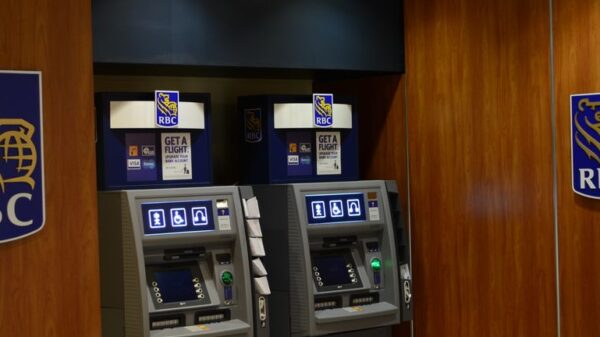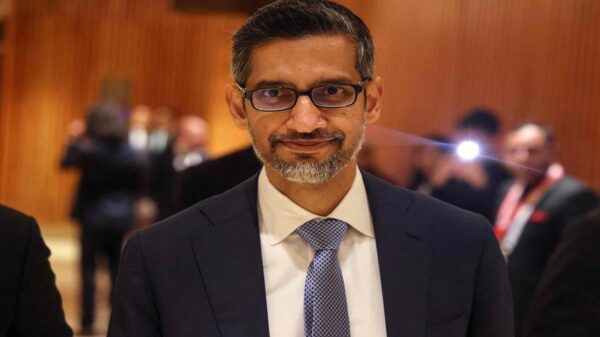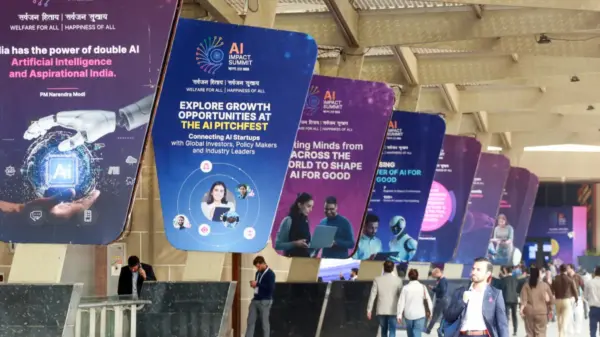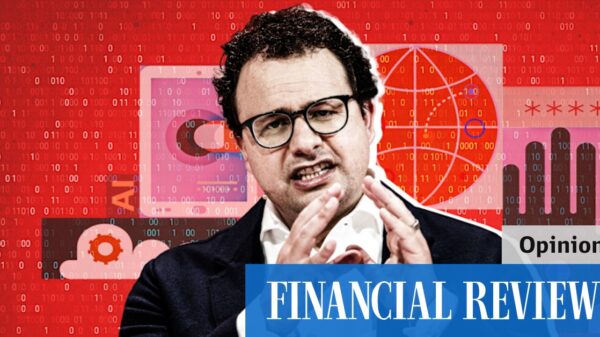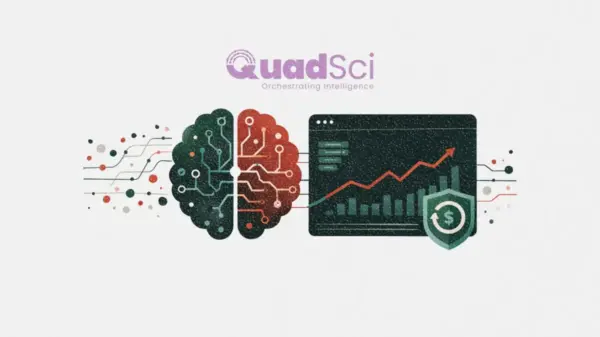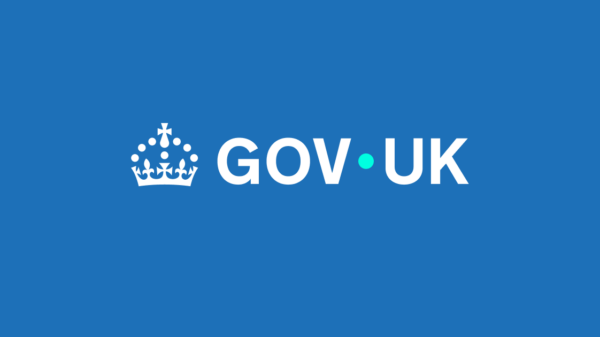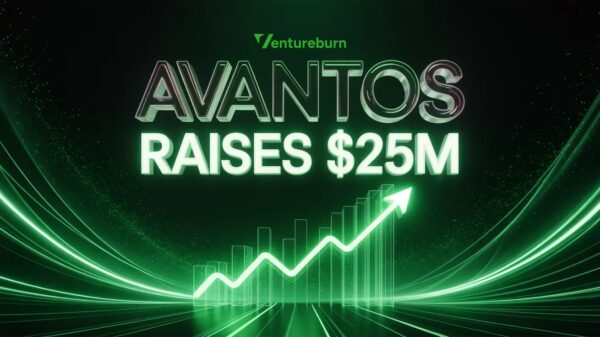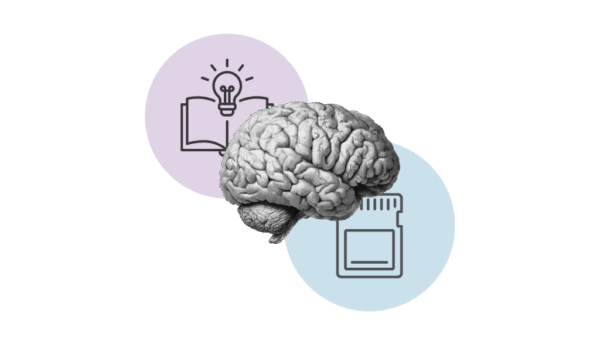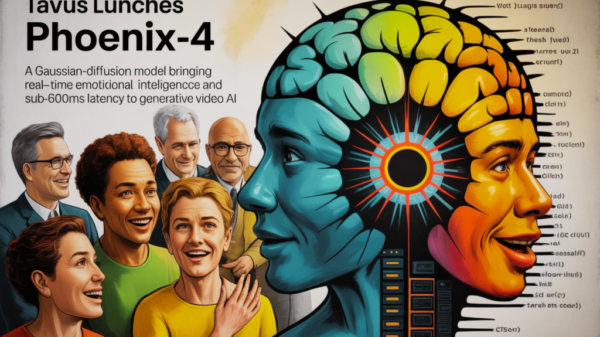In the ever-evolving realm of artificial intelligence, few figures are as influential as Aidan Gomez, the co-founder and CEO of Cohere. Gomez, who significantly contributed to the development of the Transformer architecture at Google, has recently expressed concerns that AI technology is on the brink of drastically transforming the finance sector. In an interview with Business Insider, he emphasized that current AI applications in enterprises are merely “super foundational,” indicating that we are only beginning to explore AI’s potential.
As AI models progress beyond rudimentary tasks such as data summarization and basic analysis, Gomez anticipates an impending wave of disruption that could profoundly affect white-collar jobs, especially in finance. He noted, “We’re still doing the super foundational,” predicting that enhanced AI capabilities will lead to greater automation of complex decision-making processes in areas like trading, risk assessment, and compliance.
Foundational AI Disruptions
Founded in 2019, Cohere has carved out a niche in the enterprise AI sector, focusing on secure and scalable solutions. The company’s recent initiatives, particularly the North AI agents platform, are designed to facilitate corporate adoption of AI for more advanced tasks. According to reports from Upstarts Media, Gomez mentioned that North was developed over a period of 18 months to bolster enterprise use, potentially accelerating AI integration in finance.
Recent developments underscore Cohere’s momentum. In October 2025, Bloomberg reported that the company is contemplating an initial public offering (IPO) “soon,” which could make it one of the first AI model creators to go public. Gomez confirmed this aspiration, showing confidence in the company’s prospects amid increasing competition from other players like OpenAI.
Gomez’s Journey and Industry Recognition
Aidan Gomez’s career began at Google Brain, where he co-authored the groundbreaking 2017 paper “Attention Is All You Need,” which introduced the Transformer model that revolutionized natural language processing. This foundational work has guided Cohere’s focus on practical, enterprise-grade AI solutions as opposed to consumer-oriented chatbots. His contributions have earned him a spot in Forbes’ 2025 30 Under 30 AI list, highlighting his impact on the field.
Discussions on social media platforms reflect a shared optimism regarding AI advancements, with various users echoing Gomez’s predictions about future breakthroughs in AI reasoning and planning capabilities. For instance, a post from January 2025 quoted Gomez discussing AI’s potential to learn from experience, suggesting imminent enhancements in its functionality.
Targeting Finance: AI’s Next Frontier
The finance sector is particularly suited for AI disruption due to its reliance on extensive data. Gomez emphasized that as AI models evolve, they could take on sophisticated financial modeling, predictive analytics, and even strategic advising—roles typically held by highly compensated professionals. This aligns with current industry trends, where AI is already automating routine compliance checks and fraud detection.
According to a DNYUZ article from November 19, 2025, Gomez reiterated that enterprise AI “hasn’t really even scratched the surface” and posited that finance is poised for the next wave of disruption. He elaborated that greater disruption is likely as models improve, with significant implications for white-collar jobs in banking and investment.
Preparing for IPO and Market Dynamics
As Cohere progresses toward its IPO, analysts are closely monitoring its trajectory. Startup Wired noted in October 2025 that the company is valued at $5.5 billion and is poised to redefine the global AI landscape. Gomez’s leadership, marked by his expertise from the earlier development of the Transformer model, positions Cohere for potential dominance in the enterprise AI market, with plans to raise over $500 million during the IPO process.
Nonetheless, despite the optimism surrounding these advancements, Gomez is aware of the limitations of AI. In his discussions, he has emphasized that concerns about an imminent AI takeover are overblown, as models are constrained by the limitations of human data. His recognition of these challenges is echoed in his discussions about the hardware needs for advanced models in finance, particularly the contributions of companies like AMD in this area.
As AI continues to evolve, its applications in finance could revolutionize everything from algorithmic trading to personalized wealth management. Gomez’s vision includes utilizing synthetic data to improve forecasting accuracy, as detailed in a YouTube video shared on X (formerly Twitter). As AI models gain credibility, the finance industry must prepare for ethical integration and the potential disruption of traditional roles.
Ultimately, as Gomez stated to Bloomberg, Cohere’s public debut will be a test of the market’s appetite for AI innovators and could accelerate the very disruptions he anticipates within the finance sector.
 Virkkunen and Jørgensen Host AI and Energy Event to Shape EU’s Digital Strategy
Virkkunen and Jørgensen Host AI and Energy Event to Shape EU’s Digital Strategy Sundar Pichai Defends AI Investment Boom as “Rational,” but Admits Energy and Job Disruptions Ahead
Sundar Pichai Defends AI Investment Boom as “Rational,” but Admits Energy and Job Disruptions Ahead Vietnam’s AI Market Projected to Surge to $2.8B by 2033, Driven by Digitalization
Vietnam’s AI Market Projected to Surge to $2.8B by 2033, Driven by Digitalization Create Your AI Character: 10 Steps to Simulate Conversations with a Rock Star
Create Your AI Character: 10 Steps to Simulate Conversations with a Rock Star Nvidia Reports Strong Earnings Amid AI Bubble Concerns, OpenAI’s $100B Investment Plan
Nvidia Reports Strong Earnings Amid AI Bubble Concerns, OpenAI’s $100B Investment Plan








